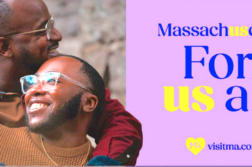FOLLOWING THE PASSAGE of Proposition 8 in California last November, the battleground for marriage equality has now shifted to the nation’s capital as efforts are under way to repeal the Defense of Marriage Act (or DOMA), which precludes the federal government from recognizing same-sex marriage even in states where it is legal. One group that strongly supported Proposition 8—with seventy percent voting yes, according to some exit polls—was African-American voters. This past September, African-American bishop Harry Jackson and other black Christian pastors submitted a ballot initiative to prohibit any recognition of same-sex marriage, including those performed out of state, in Washington, D.C.





